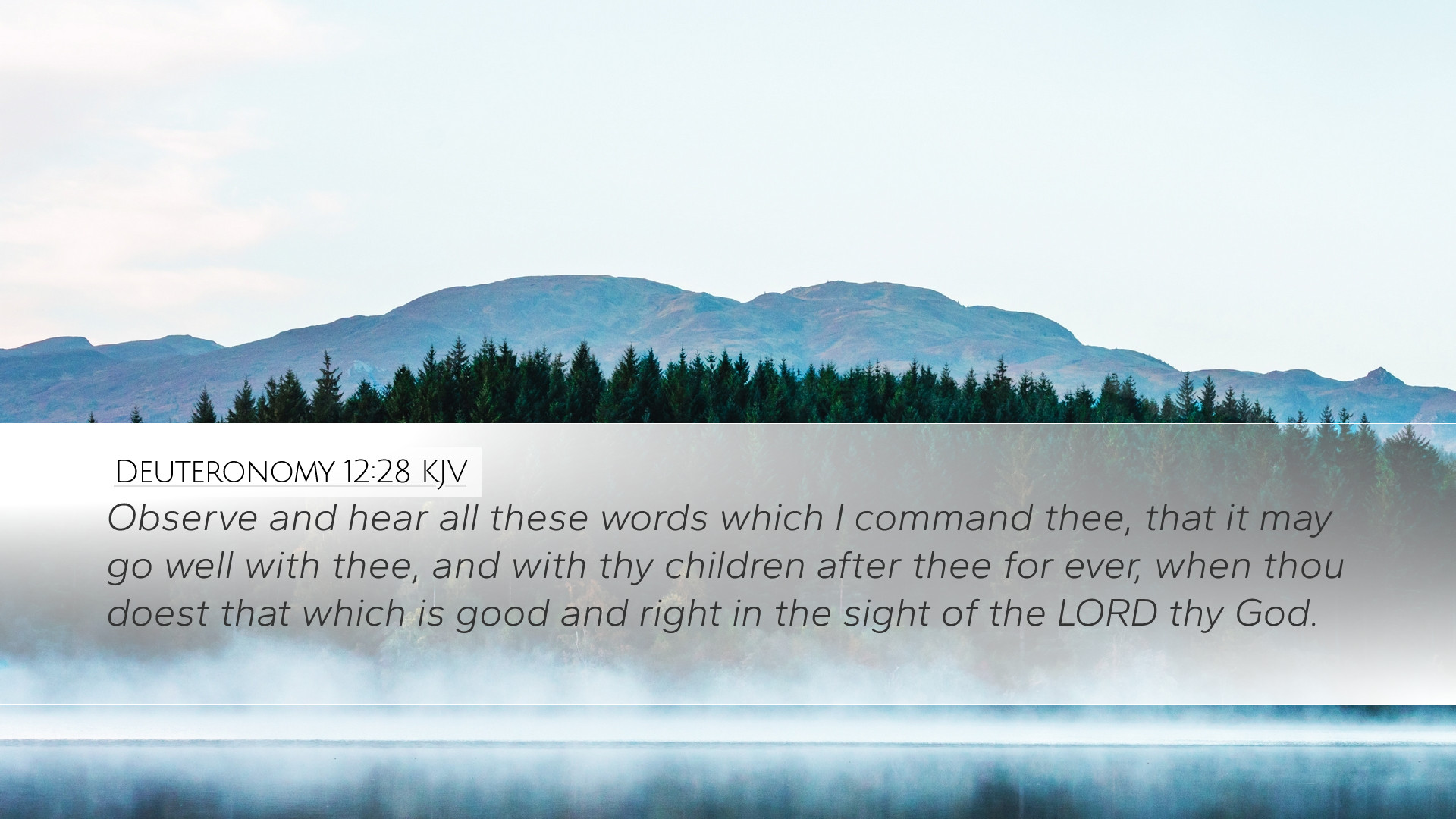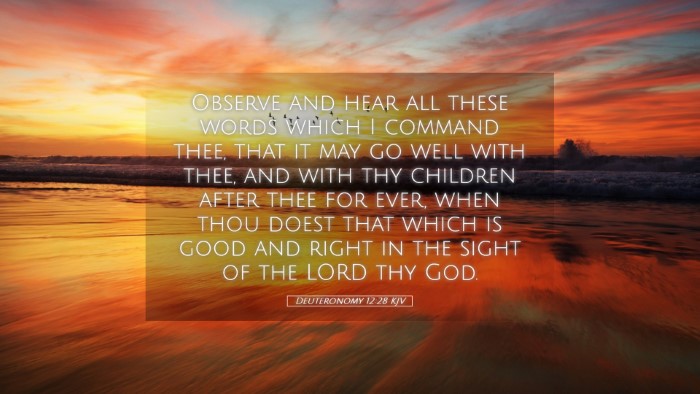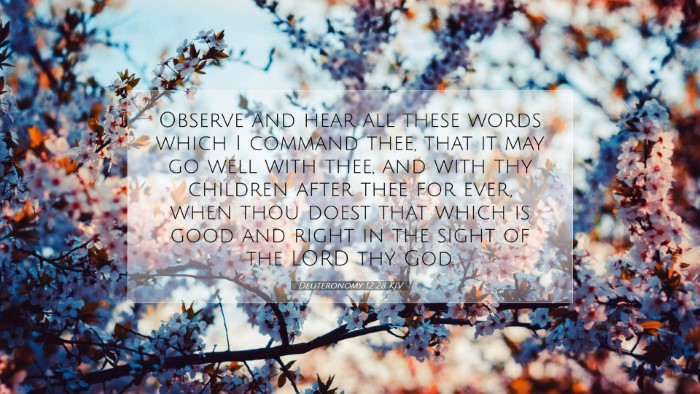Bible Commentary on Deuteronomy 12:28
Verse Reference: Deuteronomy 12:28 - "Observe and hear all these words which I command thee, that it may go well with thee, and with thy children after thee forever, when thou doest that which is good and right in the sight of the Lord thy God."
Introduction
The verse of Deuteronomy 12:28 emphasizes the importance of obeying God's commands as a means of securing blessings for oneself and future generations. This theme of faithful adherence to divine law is prevalent throughout the Pentateuch and serves as a cornerstone of Judeo-Christian ethics.
Exegesis and Analysis
1. The Call to Obedience
The command to "observe and hear" signifies a twofold responsibility: both attentive listening and active compliance. Matthew Henry notes that God desires not only the acknowledgment of His words but also their practical application in daily life. This reflects a relational aspect of the covenant—God's people must engage with His will earnestly.
2. The Promise of Well-Being
This phrase "that it may go well with thee" is a reiteration of the covenant promises laid out throughout the Torah. Albert Barnes explains that the Hebrew understanding of well-being encompasses not only physical prosperity but emotional and spiritual flourishing, indicating a holistic view of life that honors God’s commandments.
3. The Importance of Generational Faithfulness
Deuteronomy 12:28 underscores a key biblical principle—the impact of faithfulness to God’s commands on future generations. Adam Clarke points out that this injunction serves as both a warning and an encouragement. It calls the current generation to establish a legacy of righteousness that will benefit their descendants. The covenant community is thus challenged to consider how their choices affect their children and beyond.
Theological Implications
1. Divine Blessings
The notion that obedience leads to blessings is central in the biblical narrative. The conditional nature of the promises, as elucidated by Henry, signifies that God's favor is intricately linked to His people's fidelity to His covenant. This principle echoes throughout Scripture, informing Christians of the ongoing relevance of obedience in their relationship with God.
2. Ethical Living
This verse challenges believers to pursue what is "good and right" according to divine standards. Clarke discusses the moral implications involved, stressing that ethical living is not subjective but rooted in God’s revealed will. In a time when moral relativism prevails, this text stands as a call to maintain integrity in accordance with God’s standards.
Practical Application
1. Hearing and Doing
Pastors and church leaders are reminded that teaching God’s word should encourage believers to practice what they hear. As faithful stewards of the gospel, they are tasked with the responsibility to model this obedience in their lives, providing a clear example for their congregations.
2. Long-Term Vision
Faith communities are encouraged to adopt a long-term perspective on their teaching and practices. The emphasis on "children after thee" prompts an examination of how current actions shape the faith of future generations. Churches should thus focus on discipleship and the cultivation of faith in younger members, ensuring that the legacy of faith continues vibrantly.
Conclusion
Deuteronomy 12:28 serves as a vital reminder of the covenantal relationship between God and His people, illustrating the profound connection between obedience and blessing. It calls for a holistic commitment to living righteously and encourages believers to consider the implications of their faith on future generations. By adhering to these principles, the faithful can aspire to uphold a life that aligns with God's desires, securing a legacy of spiritual well-being.


